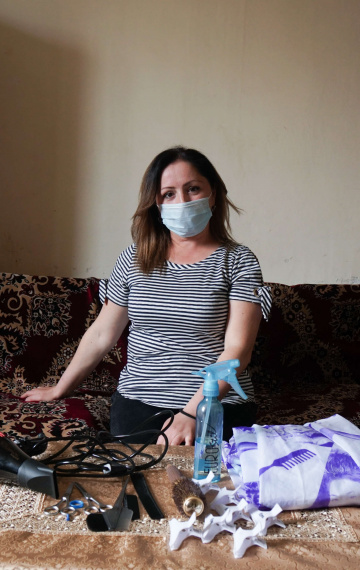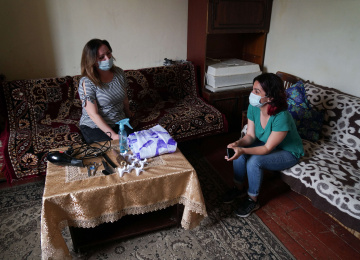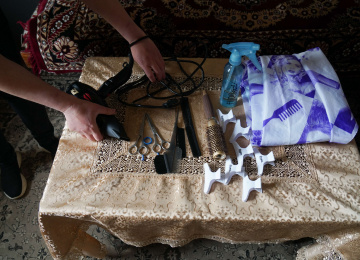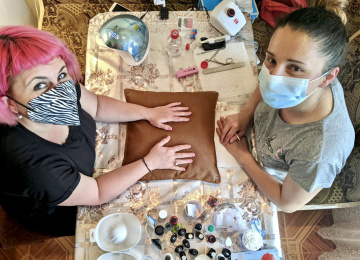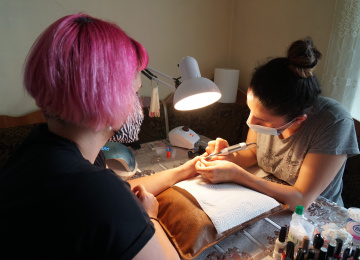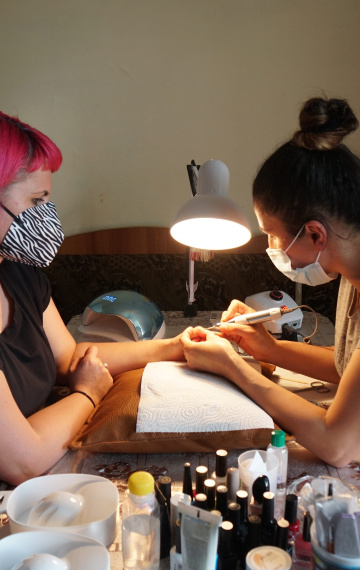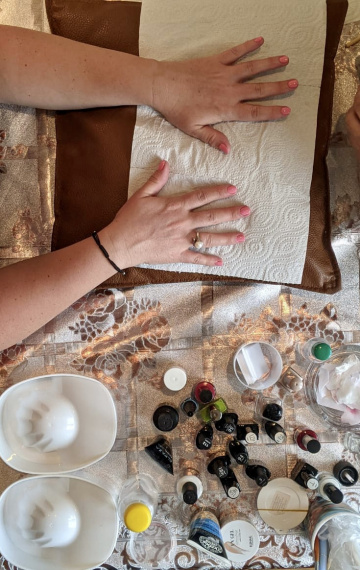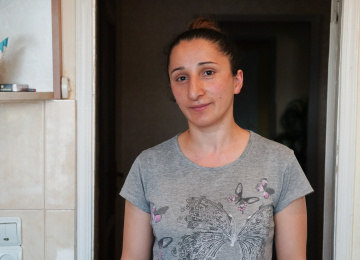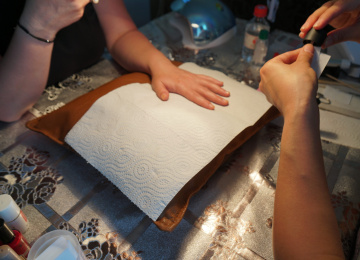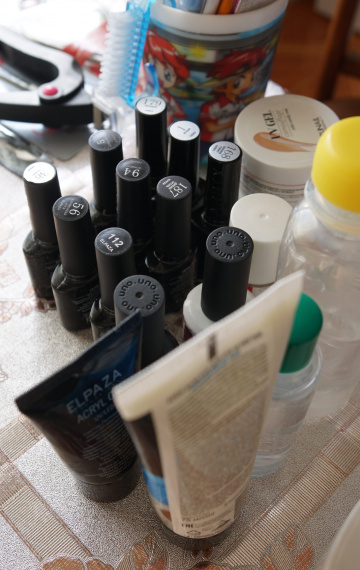Armine Ghazaryan moved to Spitak, Armenia, when she got married, and today she lives with her son, husband, and mother-in-law in the suburbs. Armine’s husband used to work in Russia, but now he is back and has no job. Farming is the family’s only source of income. Complicating things, Armine’s son, 7, was born with autism and is unable to speak. While Armine receives support from the entire family, she bears the bulk of the childcare responsibilities, making it difficult to find a job and make money.
A project funded by the European Union’s Covid-19 Solidarity Programme under the EU4Business umbrella is working to change that.
Together with a local organization, Armenian Mothers, People in Need (PIN) is providing support to women like Armine, helping them gain skills to enter the job market. For instance, the project helps mothers of children with disabilities learn how to style hair or give manicures, services that can be done from home. This type of training enhances women’s financial independence and strengthens their self-esteem.
Thanks to this project, Armine became a hair stylist. After four months of hairdressing classes and three months of social media marketing lessons, Armine is growing her client base and earning money for her family. In the coming months, Armine plans to begin offering her services from a salon she is setting up in her house, a setup that will make it easier to juggle work with childcare responsibilities.
“Currently I work mostly for relatives, and from time to time I also travel to Vanadzor city to do haircuts there,” Armine says. “Right now my income is small, but I believe that soon I will have more chances to earn money.”
***
Silvard Hunanyan, aged 38, is a mother of three from a suburb of the Armenian city of Vanadzor. Her son, Vardan, was born with cerebral palsy, and though she receives some help from her family, she is primarily responsible for the 16-year-old’s care. Hunanyan says, “Vardan first walked when he was 8. He is 16 now, but he still doesn’t speak. He can’t eat or get dressed by himself.” Hunanyan had never had the chance to study, and she hadn’t been able to hold a proper job. So when she was invited to attend professional manicure training organised by Armenian Mothers, a non-governmental organisation (NGO) supported by People in Need (PIN) as part of the European Union-funded “Professional Training for Mothers of Children with Disabilities” project under EU4Business, she didn’t hesitate.
Armenian Mothers is an NGO working to dispel the myth that women, especially those who care for children with disabilities, are unable to do anything outside of tending to their children. Within the framework of the project, 20 Armenian women received professional training. They attended four-month hairdressing and manicure courses, and were trained by top local specialists. They were given professional tools and the necessary materials to start taking clients, and learned how to market their services on social media. The trainings provided mothers with opportunities for working from home, which became especially important during the COVID-19 pandemic.
Hunanyan explains: “I have learned how to give manicures and I really love it. It is important for mothers who are dealing with other issues to be able to do this kind of work, because it enables us to take some time for ourselves.” She adds: “I can have my business and contribute financially to my family. Until now, only my husband has been working. It is a bit difficult.” Hunanyan´s husband brings vegetables from the villages and sells them to the markets in Vanadzor. “I am hardworking and ambitious, I just need a bit of direction and support so I can move forward and become a professional,” Hunanyan says.
“I want to have my own salon, so other mothers can learn and work with me and contribute to their family’s finances. Now they are just at home like me, not because they don’t have the ambition, but because they have kids and no time,” she concludes.

